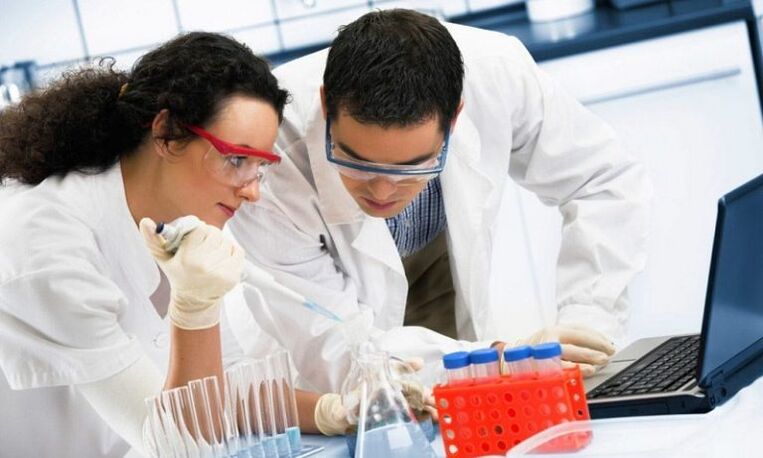For a male healthcare professional, the treatment regimen for prostatitis is always extremely simple. General rules are developed depending on the nature of the disease. Medications should only be different if there are individual differences between patients.
Of course, the type of pathogen pathogen may also influence the therapeutic program for the treatment of prostatitis. Prostatitis is not just a chronic form of acute infectious inflammation. The cause is often a viral form of the disease. The treatment of various nonspecific prostatitis is slightly different from that of bacterial.
The patient must be accurately and correctly diagnosed before choosing a treatment regimen. This is only possible with the appropriate expertise of your doctor.
Infectious prostatitis
Various viruses can cause painful changes in the function and structure of the prostate. They are usually sexually transmitted and are therefore treated under the supervision of a dermatovenerologist.

After prescribing laboratory tests, your doctor will select the antiviral medicines needed for your case. It is often combined with antispasmodics. If chronic prostatitis is in the acute stage, it may be necessary to take painkillers.
In addition to exacerbation, direct massage of the prostate gland is recommended. Such therapy helps to quickly remove fluids with pathogenic flora from the organ affected by the virus. Massage also reduces inflammation and stimulates proper prostate activity.
Bacterial prostatitis
The treatment regimen for bacterial prostatitis should be based primarily on antibiotic therapy. In this case, antibiotics are the first line of treatment. Competent use of bacteriostatic and bactericidal drugs contributes to the complete remission of inflammatory symptoms of the prostate.
Physiotherapy is also an integral part of the treatment of chronic prostatitis. Hardware influencing procedures help to affect the affected organ very subtly and subtly, restoring the health of the body.
In this case, not only the managed but also the overall effect is important. After all, an effective treatment regimen for prostatitis always means an integrated approach to patient health.
Candida prostatitis
Prostatitis caused by a fungal infection is treated in much the same way as other bacterial forms. In this case, however, it is more important than ever to treat not only the man but also his sexual partner.
After all, the Candida fungus spreads from woman to man during sexual intercourse. And an infected man is a healthy partner. Contact with an untreated partner will invalidate antibiotic therapy. Which may necessitate the prescription of more aggressive drugs.

In the case of Candida prostatitis, the chronic form of this disease can even lead to the appointment of surgery. In fact, the proliferation of candida leads to structural pathological changes in the tissues of the prostate gland. The consequences are often irreversible. An advanced form of the disease may even require radical surgery and complete removal of the organ affected by the fungus.
Calculous prostatitis
Prostate congestion can also have serious consequences and may require intracavitary intervention. With timely medical care, laser or sound therapy can be dispensed with. It is important to convert the computational deposits into sand over time, which can naturally be eliminated from the body.
The use of prostate massage in the exacerbation of a chronic form of congestive prostatitis is unacceptable. It can cause a shift in the rock formations, leading to damage to the iron deferens.
In order to normalize the levels of salts in the body, a rather strict diet is presented, which excludes the possibility of the formation of new stones in the prostate ducts.
Chlamydia prostatitis
The specificity of this form of prostatitis depends on the nature of the pathogen. Chlamydia show signs of bacterial and viral infection. Therefore, the treatment regimen for chronic prostatitis in this case is necessarily complex.

Detailed clinical examinations of prostate secretion and other test results are very important in this form of the disease. After all, the appointment of a particular drug depends directly on the duration and stage of the course of the disease.
Even antibiotic therapy, which is a priority in the treatment of most prostatitis, is not necessarily effective without detailed laboratory analysis.
























